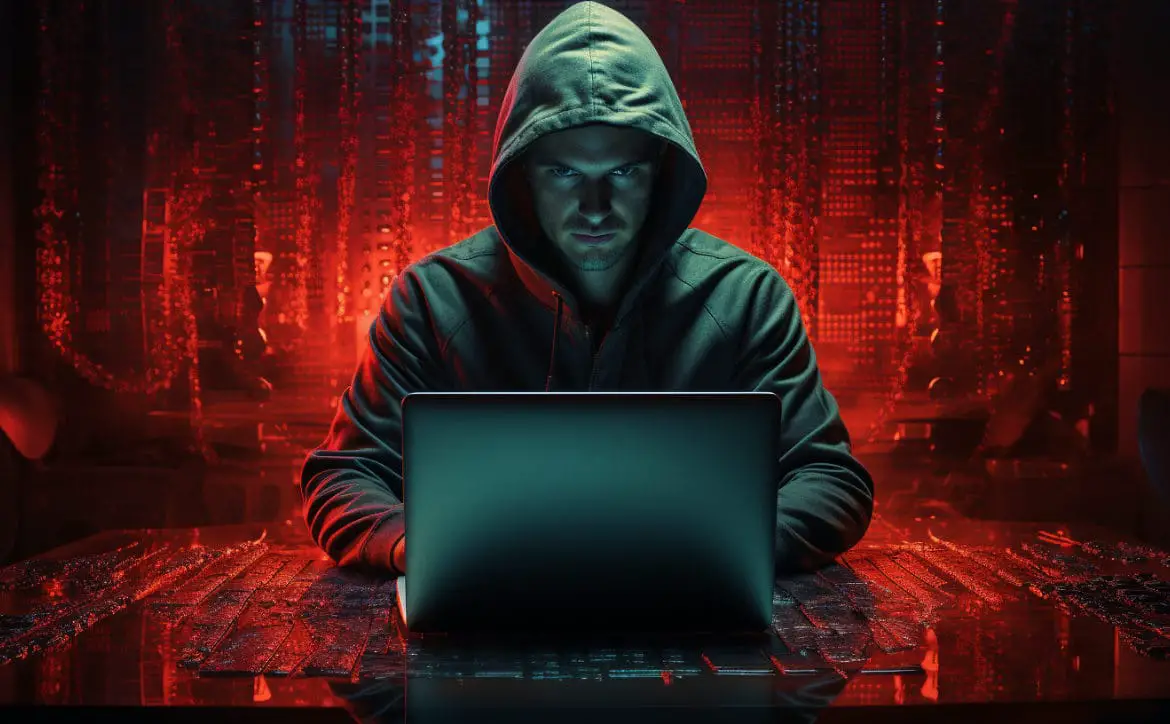The internet, a marvel of modern civilization, has transformed how we connect, interact, and learn. Much like a versatile multitool, it has evolved to serve diverse functions. Whether it’s connecting with a friend on the other side of the globe, indulging in a shopping spree from the comfort of one’s home, exploring the world of art, grooving to music, diving into academic research, or even chuckling over the antics of internet-famous cats, the web seems to have something for everyone. But, as with most things, there’s a darker side to this incredible tool. Behind the conveniences lie potential pitfalls: exploitation, cybercrime, malicious threats, invasions of privacy, and doxing.
Estimated reading time: 7 minutes
Doxing: The Silent Cyber Menace
Doxing might not be a term familiar to all, but its implications are chilling. It refers to the act of maliciously unveiling someone’s private information without their permission. While the most common imagery associated with doxing may involve the unauthorized sharing of personal addresses, the real menace is the underlying intent – to expose, harass, or even cause harm to the targeted individual.
One might naturally assume that such a malicious act would have legal penalties. The reality, however, is a bit more complex. Doxing, as a standalone act, isn’t always illegal, especially if the information was sourced through legal means. This gray area is further exacerbated by the presence of free-to-use data brokers, such as Fast People Search. Such platforms can unintentionally aid doxers, leaving potential victims scrambling for ways to protect their personal information, like seeking out fastpeoplesearch opt-out guides.
Safeguarding Against Doxing: Proactive Measures

The sobering truth is that in this digital age, the threat of doxing is ever-present. However, there are effective strategies to shield oneself. The foremost strategy is to proactively reduce one’s digital footprint:
- Private Social Media Settings: Ensure that your personal information and posts are visible only to trusted individuals.
Beware of Data Brokers: Regularly check data broker sites and opt-out when possible to prevent your information from being easily accessible.
- Use Pseudonyms: Instead of using your real name on online forums or websites, consider using a pseudonym to hide your identity.
- Be Cautious About Sharing: Think twice before sharing personal details, even in seemingly innocuous online quizzes or surveys.
How to protect yourself
Proactive measures, in the realm of internet safety, are akin to preventive medicine in healthcare. It’s always wiser and more efficient to prevent a threat than to deal with its aftermath. Just as we wear seat belts to protect against potential accidents, proactive online precautions guard against looming cyber threats.
Doxing, the malicious act of exposing someone’s private information without their consent, is a threat that’s all too real in today’s digital age. The feeling of vulnerability it incurs can be overwhelming, constantly casting a shadow of unease. While it’s a comforting notion to think we’re impervious, it’s essential to recognize the reality. The internet, vast and diverse, houses not just well-meaning users but also those seeking opportunities to exploit.
To shield oneself, several preventive steps can be taken:
- Reduce Digital Footprint: Limit the personal information you share online. Think twice before divulging details that can be used against you.
- Embrace 2-Factor Authentication: This adds an extra layer of security, ensuring that even if your password is compromised, your accounts remain safe.
- Prioritize Privacy: Ensure that your social media profiles are set to private, only accessible to those you trust.
- Email Vigilance: Be skeptical of unfamiliar emails, especially those prompting for personal details or clicks on suspicious links.
- Strengthen Privacy Settings: Platforms like Google and Facebook, which hold a wealth of user data, should be approached with added caution. Delve into their privacy settings and tailor them to enhance your protection.
Steer clear of public Wi-Fi networks.

Public Wi-Fi, often available in locations such as cafes, malls, and airports, provides a much-needed connection, especially when cellular service is lacking. At first glance, these networks seem like a godsend, allowing users to check emails, stream content, or perform work tasks on the go. However, beneath this veil of convenience lies a potential cyber minefield.
These open networks often lack robust security measures, making them a hotspot for cybercriminals. With minimal effort, individuals with nefarious motives can snoop on unencrypted traffic, thereby gaining access to sensitive data. This could include confidential work-related emails, personal messages, or even login credentials.
Moreover, malicious actors can also set up rogue Wi-Fi hotspots with similar names to legitimate networks, deceiving users into connecting and then capturing their data.
To ensure digital safety, always think twice before connecting to public networks, and consider using a virtual private network (VPN) to encrypt your activities, making it harder for prying eyes to intercept your data.
Avoid contentious interactions on digital forums.

In today’s digital age, interactions extend beyond the physical realm and into the vast, intricate web of the internet. While this virtual space offers immense potential for connection, it also harbors certain risks. Among these is doxing, a particularly sinister form of online retaliation where private information is maliciously exposed without consent.
The nature of the internet often magnifies reactions, turning minor disagreements into full-blown confrontations. A simple comment on a public post, or participation in an online debate, can unknowingly set the stage for unforeseen conflicts. Given the anonymous facade the internet can provide, it’s all too easy for tempers to flare and for individuals to act impulsively, driven by the relative anonymity of their online avatars.
Worse yet, confrontations with aggressive netizens can escalate at an alarming rate. One might find themselves at odds with someone who was a complete stranger just a few minutes prior.
In such a volatile environment, caution becomes paramount. For one’s safety and peace of mind, it’s advisable to maintain a low and discreet online profile. Equally critical is the need for restraint. Before entering potentially contentious discussions or sharing personal viewpoints, it’s always wise to consider the potential ramifications and tread carefully. In a world where digital footprints are indelible, prudence is our best defense.
What to do if you’re doxed?

In the vast expanse of the digital universe, not all encounters are benign. Situations may arise where you feel directly threatened or targeted, often due to malicious practices like doxing. In such circumstances, it’s essential to adopt a clear, safety-first approach.
Firstly, if you’re in a public space or a location where you feel exposed, move to a more secure location where you can take the next steps without immediate fear. Your personal safety is paramount, so ensure you are in a place where you feel safe and protected.
When reaching out to others about the situation, opt for encrypted messaging platforms such as Telegram or WhatsApp. These tools offer enhanced security, ensuring your conversations remain private and shielded from potential prying eyes.
If you’ve been targeted, be sure to collect and preserve any evidence of the interaction. Screenshots, messages, and other digital footprints can serve as crucial documentation. Should you decide to report the incident, this evidence can be invaluable in corroborating your account.
Moreover, while doxing itself might reside in a legal gray area, outright threats often don’t. If you receive explicit threats, it’s vital to inform the police or relevant authorities immediately. They can provide guidance, support, and, if necessary, legal intervention.
In conclusion, when faced with online threats, the mantra is clear: prioritize your personal safety, gather evidence, and take informed, calculated actions. The digital world can be treacherous, but with vigilance and prudence, you can navigate it confidently.
What do you think? Have you encountered doxing? Please share your thoughts on any of the social media pages listed below. You can also comment on our MeWe page by joining the MeWe social network. And subscribe to our RUMBLE channel for more trailers and tech videos.










